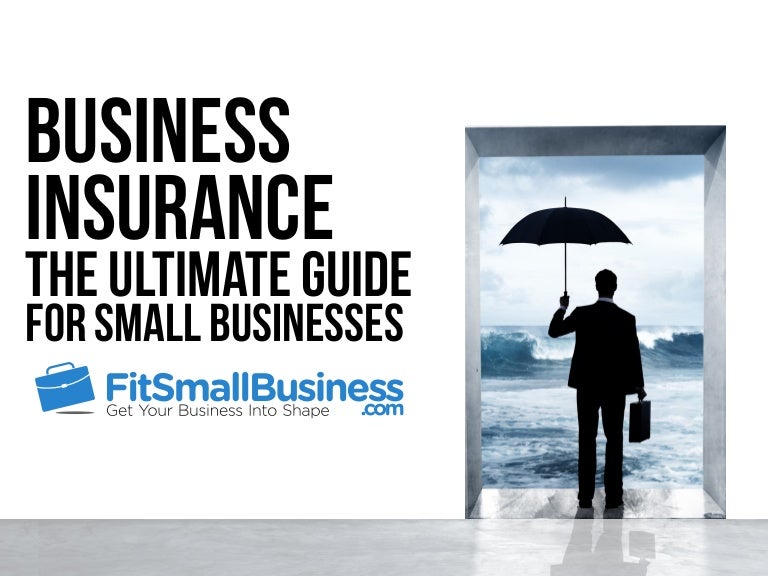As 3 small business insurance takes center stage, this opening passage beckons readers into a world crafted with good knowledge, ensuring a reading experience that is both absorbing and distinctly original. Small businesses face various risks, and having the right insurance coverage is crucial for their protection and growth. Let’s delve into the key aspects of small business insurance to understand its importance and benefits.
Overview of Small Business Insurance

Small business insurance is essential for protecting businesses from financial losses due to unexpected events or liabilities. It provides coverage for various risks that entrepreneurs may face in the course of running their businesses.
Types of Insurance Coverage for Small Businesses
- General Liability Insurance: Protects businesses from lawsuits related to bodily injury, property damage, or advertising injury.
- Property Insurance: Covers damage to business property due to fire, theft, or other covered perils.
- Business Interruption Insurance: Provides coverage for lost income and expenses if a covered event forces the business to close temporarily.
- Workers’ Compensation Insurance: Compensates employees for work-related injuries or illnesses.
Risks Mitigated by Small Business Insurance, 3 small business insurance
-
Natural Disasters: Insurance can help cover the costs of repairing or replacing property damaged by floods, earthquakes, or other natural disasters.
-
Lawsuits: General liability insurance can protect businesses from costly legal claims that could otherwise bankrupt them.
-
Theft: Property insurance can provide reimbursement for stolen goods or damage caused by theft.
Factors to Consider When Choosing Insurance
When selecting insurance for a small business, there are several key factors that business owners should take into consideration to ensure adequate coverage and protection. The size and type of the business, as well as industry-specific risks, play a crucial role in determining the insurance needs of the business.
Size and Type of Business
- Assess the size of your business: The number of employees, revenue, and physical assets of your business can impact the type and amount of insurance coverage needed.
- Consider the industry: Different industries have varying levels of risk exposure, so it’s important to choose insurance that addresses the specific risks associated with your business sector.
- Understand the scope of operations: Whether your business operates solely online, has a physical location, or involves frequent interactions with customers can influence the insurance coverage required.
Industry-Specific Risks
- Identify unique risks: Certain industries have specific risks that may not be covered under standard insurance policies. It’s essential to understand and address these industry-specific risks.
- Consult with industry experts: Seek advice from professionals familiar with the risks in your specific industry to ensure comprehensive insurance coverage.
- Customize coverage: Consider customizing your insurance policy to address the specific risks prevalent in your industry, such as liability, property damage, or professional errors.
Cost of Small Business Insurance: 3 Small Business Insurance

When it comes to small business insurance, the cost is a crucial aspect that business owners need to consider. The cost of insurance can vary depending on various factors, and understanding these factors can help businesses manage their insurance costs effectively.
Factors Influencing Insurance Cost
Several factors can influence the cost of small business insurance:
- The type of coverage needed: Different types of insurance policies (such as general liability, professional liability, property, or workers’ compensation) come with varying costs.
- Business size and industry: The size of the business and the industry it operates in can impact insurance costs. For example, a high-risk industry may have higher premiums.
- Location: The location of the business, including factors like crime rates and natural disaster risks, can affect insurance costs.
- Claims history: A business with a history of frequent insurance claims may face higher premiums.
Types of Insurance Premiums
There are different types of insurance premiums that small businesses may encounter:
- Annual premiums: Paid once a year, these premiums cover the business for the entire year.
- Monthly premiums: Businesses can opt to pay their insurance premiums on a monthly basis, spreading out the cost over the year.
- Deductibles: The amount a business must pay out of pocket before the insurance coverage kicks in can impact the overall cost of insurance.
Tips for Managing Insurance Costs
Here are some tips for small businesses to manage their insurance costs effectively:
- Shop around: Compare quotes from different insurance providers to find the best coverage at the most competitive price.
- Bundle policies: Consider bundling multiple insurance policies with the same provider to potentially qualify for discounts.
- Review coverage needs: Regularly review your business’s insurance needs to ensure you are not overpaying for coverage you do not need.
- Implement risk management strategies: Proactively manage risks within your business to reduce the likelihood of insurance claims and potential premium increases.
Conclusion

In conclusion, small business insurance plays a vital role in safeguarding businesses from unexpected risks and ensuring their continuity. By carefully considering factors like coverage needs, industry-specific risks, and cost management strategies, small business owners can make informed decisions to protect their ventures effectively. Stay informed and secure with the right insurance coverage for your small business.
Clarifying Questions
What are some commonly overlooked types of insurance coverage for small businesses?
Some commonly overlooked types of insurance coverage for small businesses include cyber liability insurance, business interruption insurance, and errors and omissions insurance.
How can the size and type of a small business impact its insurance needs?
The size and type of a small business can impact its insurance needs by influencing the level of coverage required, the types of risks faced, and the premiums that the business may need to pay.
What are some effective tips for managing small business insurance costs?
Effective tips for managing small business insurance costs include comparing quotes from different insurers, bundling policies for discounts, implementing risk management strategies, and reviewing coverage needs regularly.
